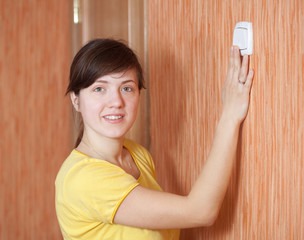Horrific stories of rogue private landlords and the accommodation they provide have once again hit the headlines in recent weeks. In many cases, some of the so-called living spaces are not only in a state of extreme disrepair but the landlord’s attempt at DIY gas and electrics could also be a potential killer.
Thankfully, these reported examples are a tiny minority. But they highlight the importance of the hidden dangers that can confront those seeking a place to rent. Young international students in the UK for the first time may not realise the problems they face until after they’ve moved in.
While there has often been a history of issues surrounding the utilities and appliances supplied in rented accommodation – luke-warm radiators, smell of gas from the cooker, boiler breakdowns – there’s likely to be no such problems at a homestay accommodation.
Why’s that, you may be asking? Long established organisations, such as Hosts International, are one of the exclusively listed British Council approved homestay providers. This means accommodation hosts must meet the standards set for the services and amenities they are to make available to students, starting with the room itself.
Most hosts conform to the standard accommodation model
The basic guidelines require that the host must provide a room with an adequate size, clean bed and blankets, wardrobe and drawer space, and which allows in sufficient natural light and ventilation. There also must be an appropriate desk, chair and reading light in either the bedroom or another room set aside for student study. The accommodation must be adequately heated, particularly in the study area, so a student can work in comfort. A good standard of personal hygiene facilities and access to toilets must also be provided with availability of hot and cold water for a daily bath or shower.
So far, so good – most host families generally conform to the standard accommodation model, at least, and there may even be a superior accommodation available too! The guidelines also state that there should be at least one functioning power socket.
Of course, it would also be an absolute must for a student room to have a broadband connection – which could also possibly mean the use of the home wifi – and that request for the password! Most importantly, however, a host should ensure that their electrics and gas are fully compliant with the safety regulations.
Electrical safety checks and Gas Safety Record
It’s amazing how many DIY botched jobs are still carried out, from “uncapped” loose cabling not in protective trunking to exposed wires peeping out from 3 pin power plugs. Generally, a private landlord and /or their property management agents are required to comply with the Electrical Equipment (Safety) Regulations 1994 and Gas Safety (Installation and Use) Regulations 1998. This means that all electrical appliances must have a C.E. symbol on the appliance and appliance instruction booklets must be supplied.
Landlords are also advised to have electrical safety checks carried out and a Periodic Inspection Report completed by an NICEIC or ECA registered electrical engineer. The reports are valid for between 1 and 10 years and most will require re-inspection within 5 years. It is also a legal requirement that an annual Landlords Gas Safety Record is carried out by a Gas Safe registered gas engineer.
Other health and safety obligations include fully functioning smoke alarms and – if there is a gas boiler or solid fuel / wood burner in the house – a battery-operated or wired-in carbon monoxide detector. Fire safety is also covered by the Housing Act 2004 and The Regulatory Reform (Fire Safety) Order 2005, which stresses the importance of fire risk assessments and ensuring that properties have the right safety measures in place. A further legal requirement is for soft furnishings i.e. beds and upholstered furniture (lounge seating, padded dining room chairs, desk chairs, headboards, pillows, cushions etc.) to comply with the Furniture and Furnishing (Fire) (Safety) Regulations 1988.
Household insurance policy
In the event of a student suffering an accident or injury during their stay, accommodation hosts should ensure that they have insurance, which is valid for liability during the period a student stays in their home.
Parents of students abroad looking to find accommodation in the UK need to definitely know their son or daughter will be safe and comfortable, especially if they are aged 18 or younger. The room hosting scheme aims to ensure that their stay conforms to the highest standards – free from those unexpected shocks, electrical or otherwise!

